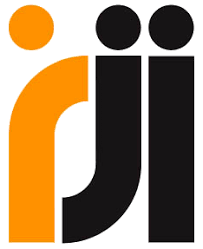DEPRESI MEMPENGARUHI KINERJA
(Sebuah Best Practice)
Abstract
Pendahuluan
Kata Depresi sudah sangat popular di telinga masyarakat kita, namun pemahaman masyarakat tentang tanda dan gejala serta upaya pencegahan dan penganan dari Depresi tersebut masih sangat rendah. Katzenstein, L. dan Cass, H. (1998, dalam Hawari, 2011) mengemukakan bahwa 1 dari 5 orang, pernah mengalami depresi dalam kehidupannya. Selain itu, ditemukan pula 5 – 15 persen dari pasien-pasien depresi melakukan bunuh diri setiap tahun dan ditemukan fakta bahwa lebih dari 70 persen pasien depresi, tidak terdiagnosa oleh dokter.
Di Indonesia, berdasarkan Riset Kesehatan Dasar tahun 2018, dengan kelompok umur lebih atau sama dengan 15 tahun, ditemukan fakta angka prevalensi gangguan depresi secara nasional, yaitu 6,1 persen atau sebesar 11.315.500 orang, namun hanya 9 persennya, yang ditangani secara medis dan sebagian besarnya (91 persen) tidak ditangani secara medis. Pendapat Ketua Perhimpunan Dokter Spesialis Kedokteran Jiwa Indonesia (PDSKJI), dr. Eka Viora, Sp.KJ, yang dikutip oleh Tri Apriyani dalam tulisannya yang berjudul Indonesia Darurat Depresi Namun Minim Praktisi (Suara.com, 23 Desember 2019), menyebutkan ada sekitar 15,6 juta penduduk yang mengalami depresi di Indonesia. Angka ini diprediksi akan meningkat pada 2020 karena lonjakan demografis atau peningkatan jumlah penduduk.
Gangguan Depresi bisa terjadi pada siapa saja dan akan mempengaruhi pola Kehidupan Efektif Sehari-hari (KES), bahkan pada kondisi tertentu bisa berujung dengan kematian, karena perilaku bunuh diri akibat keputusasaan yang sangat mendalam tanpa ada solusi, baik dari dalam dirinya maupun dari lingkungan terdekatnya. Dalam dunia pendidikan, depresi yang terjadi pada anak sekolah dan mahasiswa, dapat terlihat dari prestasi belajarnya yang menurun. Dalam dunia kerja, karyawan yang mengalami depresi dapat tergambar dari kinerjanya yang rendah, bahkan ibu rumah tangga yang mengalami depresi dapat terdeteksi dengan adanya kegelisahan dan menurun pola KES-nya.
Dari penjelasan di atas, penulis ingin berbagi tentang Depresi dan dinamikanya serta mengangkat studi kasus yang terjadi sebagai referensi untuk deteksi dini dan upaya penanganannya.
Downloads
Copyright (c) 2020 edi sukamto

This work is licensed under a Creative Commons Attribution-ShareAlike 4.0 International License.
Please find the rights and licenses in Mahakam Nursing Journal. By submitting the article/manuscript of the article, the author(s) agree with this policy. No specific document sign-off is required.
- License
The non-commercial use of the article will be governed by the Creative Commons Attribution license as currently displayed on Creative Commons Attribution-NonCommercial-ShareAlike 4.0 International License.
- Author(s)' Warranties
The author warrants that the article is original, written by stated author(s), has not been published before, contains no unlawful statements, does not infringe the rights of others, is subject to copyright that is vested exclusively in the author and free of any third party rights, and that any necessary written permissions to quote from other sources have been obtained by the author(s).
- User Rights
Mahakam Nursing Journal's spirit is to disseminate articles published are as free as possible. Under the Creative Commons license, Mahakam Nursing Journal (MNJ) permits users to copy, distribute, display, and perform the work for non-commercial purposes only. Users will also need to attribute authors and Mahakam Nursing Journal (MNJ) on distributing works in the journal and other media of publications.
- Rights of Authors
Authors retain all their rights to the published works, such as (but not limited to) the following rights;
- Copyright and other proprietary rights relating to the article, such as patent rights,
- The right to use the substance of the article in own future works, including lectures and books,
- The right to reproduce the article for own purposes,
- The right to self-archive the article,
- The right to enter into separate, additional contractual arrangements for the non-exclusive distribution of the article's published version (e.g., post it to an institutional repository or publish it in a book), with an acknowledgment of its initial publication in this journal (Mahakam Nursing Journal (MNJ)).
- Co-Authorship
If the article was jointly prepared by more than one author, any authors submitting the manuscript warrants that he/she has been authorized by all co-authors to be agreed on this copyright and license notice (agreement) on their behalf, and agrees to inform his/her co-authors of the terms of this policy. Mahakam Nursing Journal (MNJ) will not be held liable for anything that may arise due to the author(s) internal dispute. Mahakam Nursing Journal (MNJ) will only communicate with the corresponding author.
- Royalties
Being an open accessed journal and disseminating articles for free under the Creative Commons license term mentioned, author(s) aware that Mahakam Nursing Journal (MNJ) entitles the author(s) to no royalties or other fees.
- Miscellaneous
Mahakam Nursing Journal (MNJ) will publish the article (or have it published) in the journal if the article’s editorial process is successfully completed. Our Editors may modify the article to a style of punctuation, spelling, capitalization, referencing and usage that deems appropriate. The author acknowledges that the article may be published so that it will be publicly accessible and such access will be free of charge for the readers as mentioned in point 3.












